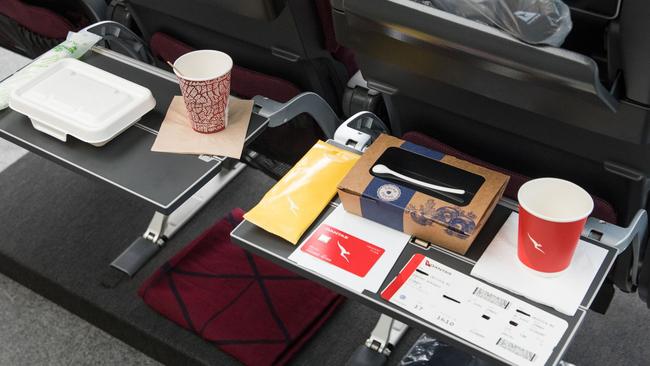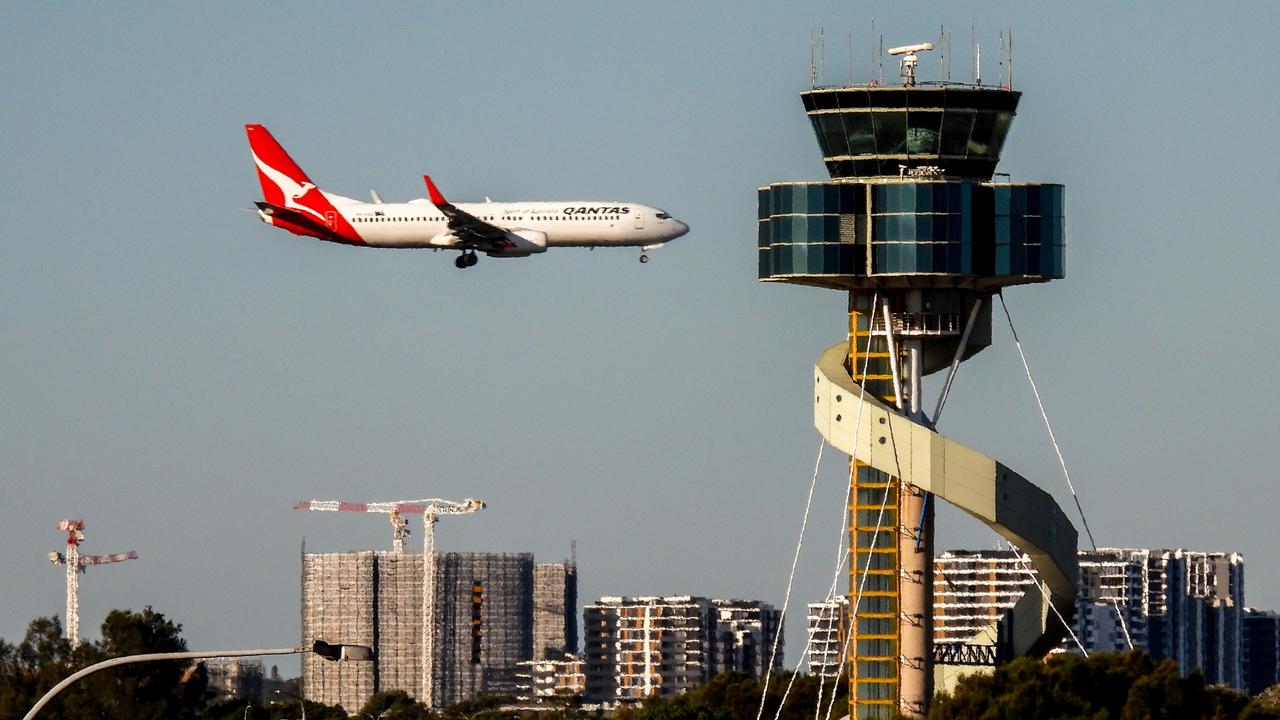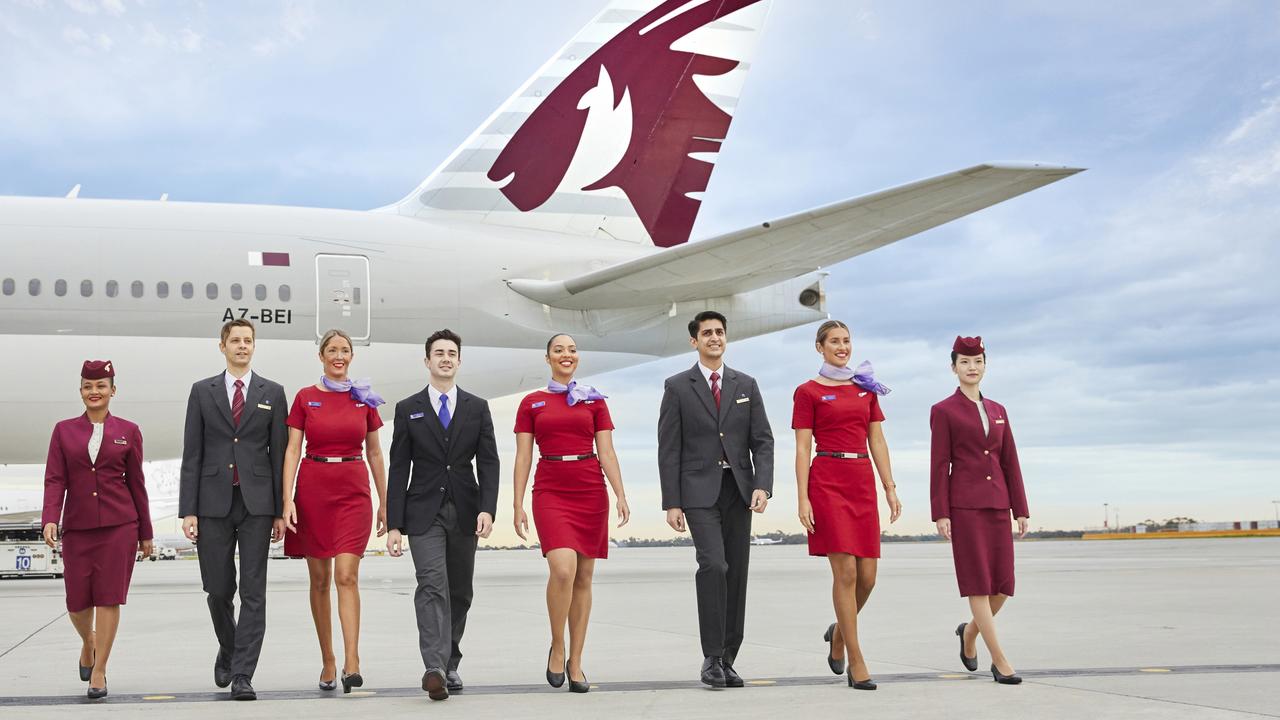Qantas conducts first ‘waste free’ flight as it moves to eliminating plastic
Qantas has taken a step towards eliminating 100 million single-use plastic items from its operations.

Qantas has taken the first step towards its goal of eliminating 100 million single-use plastic items from its operations, conducting the world’s first “waste free” flight from Sydney to Adelaide.
Group chief executive Alan Joyce announced the “green goal” at the Qantas half-year results in February but was too busy to attend the flight’s launch at Sydney Airport.
On the flight, single-use plastics and disposable food packaging was replaced by items that will be turned into compost.
Qantas Domestic chief Andrew David said the one-way flight would normally create 34kg of waste from food and drink packaging and other items like boarding passes.
“Over the course of a year this route produces 150 tonnes of waste - eventually all of that will go,” Mr David said.
He said the move was necessary to keep customers, employees and shareholders happy.
“Our customers are asking us to address our waste,” said Mr David.
“We are doing it because our cabin crew see this waste and want it eliminated and increasingly our shareholders are demanding we do more to address our environmental footprint.”
By the end of 2021, Qantas aimed to reduce its annual waste by 75 per cent by switching to
sustainable and recyclable products in every aspect of flight operations.
Among the changes passengers would notice were meal containers made from sugar cane and
cutlery made from cornstarch, as well as bioplastic wrapping and bamboo stick stirrers.
Mr David said there would be an additional cost to Qantas as a result of changing products but this would not be passed on to passengers.
“There’s always cost in change but in the long term we would expect cost to come down
because we’re eliminating waste and that waste goes to landfill and we do know the cost of landfill will continue to rise,” he said.
Qantas flight attendant Madeline Rowcliff said the changes were “desperately wanted” by cabin crew.
“You see (the waste) every day, you touch and feel it. You really can see what the issue is,” Ms Rowcliff said.
She said although many of the waste items were small, they were big in number – with an average 737-800 flight carrying about 250 small containers of longlife milk.
“They will be replaced by four or five cartons of milk,” said Ms Rowcliff.
Qantas Group executive government and sustainability Andrew Parker said a total of 1000 changes had to be made for products used in flight but one thing passengers would not notice was any change in the “premium service”.
“We think this is one of Australia’s biggest waste reduction initiatives,” Mr Parker said.
Eco-friendly food packaging company BioPak supplied many of the new products which would be commercially composted in Adelaide.
BioPak CEO Gary Smith said the Qantas initiative was an “unprecedented step forward in fighting the war on waste”.
“This is the most ambitious waste reduction target of any major airline globally and we are truly excited to be at the forefront in providing state-of-the-art, eco-friendly products that solve the impending issue of single-use plastics,” Mr Smith said.



